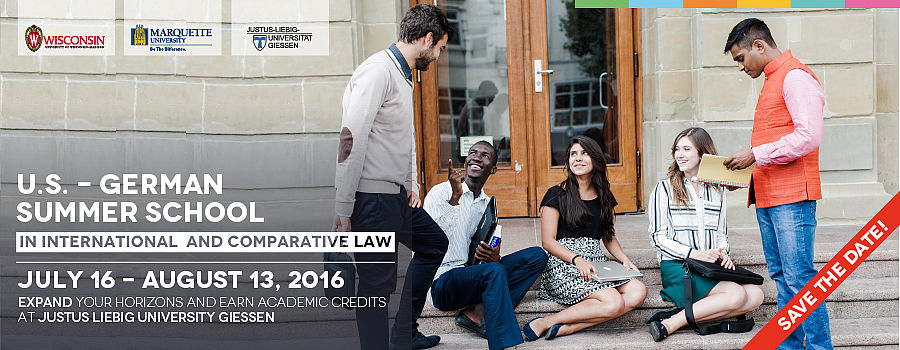Applications Still Being Accepted for Study Abroad in Germany
There is still time to join law students from Wisconsin, throughout the United States, and around the world as they come together in Giessen, Germany from July 16 to August 13, 2016 for the Eighth Annual Summer Session in International and Comparative Law. The program already has the minimum number of participants necessary to move forward, but additional participants are welcome and applications will continue to be accepted until May 27.
The faculty includes Marquette Law School’s own Professor Ed Fallone and Adjunct Professor Doug Smith, as well as Professor Heinz Klug from the University of Wisconsin Law School, Professor Thilo Marauhn of the Justus Liebig University in Giessen, Germany, and Professor Sorcha MacLeod of the University of Sheffield in the United Kingdom.
Participants can choose two classes from the following four courses: 1) Comparative Constitutional Law: The E.U., Germany and the U.S.; 2) International Economic Law & Business Transactions; 3) Business Ethics and Human Rights Law; and 4) Comparative Corporate Governance. The schedule includes field trips to Berlin and Hamburg, as well as free time to travel Europe on your own.
Applications can be downloaded from the “Study Abroad” link on the Marquette Law School webpage. Interested students from Marquette or other ABA accredited law schools should contact Prof. Ed Fallone at edward.fallone@marquette.edu for more information.


